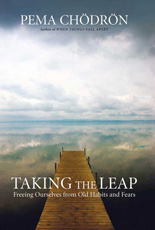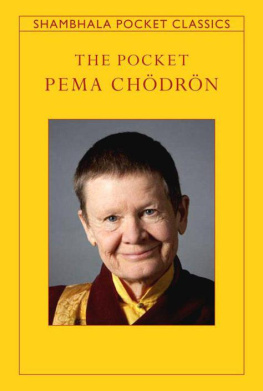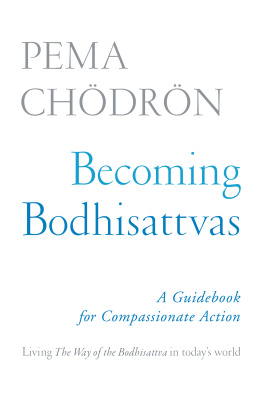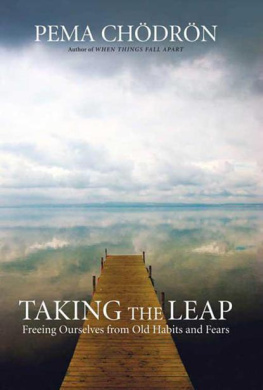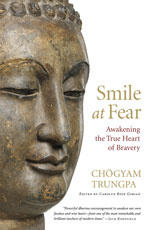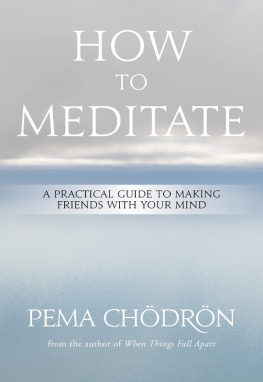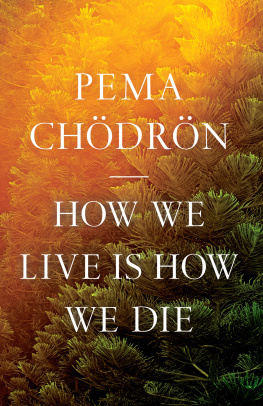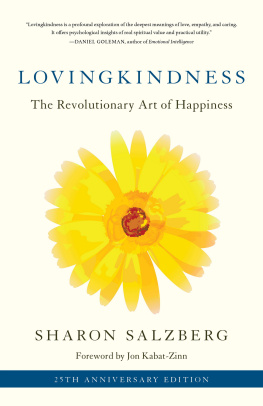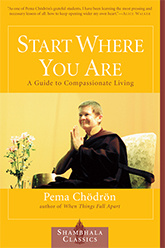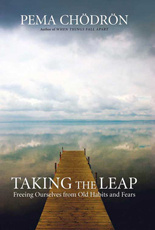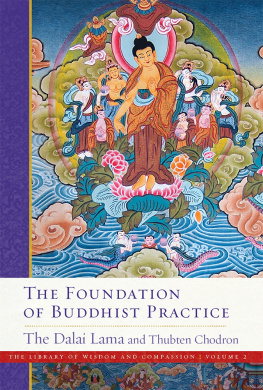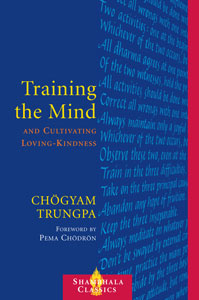Comfortable with
Uncertainty

108 Teachings on Cultivating Fearlessness and Compassion
P EMA C HDRN
Compiled and edited by
Emily Hilburn Sell

SHAMBHALA
Boston & London
2010
S HAMBHALA P UBLICATIONS , I NC .
Horticultural Hall
300 Massachusetts Avenue
Boston, Massachusetts 02115
www.shambhala.com
2002 by Pema Chdrn and Emily Hilburn Sell
The Four Limitless Ones chant in the book epigraph is adapted from the translation by the Nland Translation Committee.
The translations of the lojong slogans are reprinted from The RootText of the Seven Points of Training the Mind 1981, 1986 by Chgyam Trungpa; revised translation 1993 by Diana J. Mukpo and the Nland Translation Committee.
The Dedication of Merit chant at the end of this book is translated by the Nland Translation Committee.
All rights reserved. No part of this book may be reproduced in any form or by any means, electronic or mechanical, including photocopying, recording, or by any information storage and retrieval system, without permission in writing from the publisher.
T HE L IBRARY OF C ONGRESS CATALOGUES THE PREVIOUS EDITION OF THIS BOOK AS FOLLOWS :
Chdrn, Pema.
Comfortable with uncertainty: 108 teachings/Pema Chdrn; compiled and edited by Emily Hilburn Sell.
p. cm.
eISBN 978-0-8348-2112-5
ISBN 978-1-57062-972-3
ISBN 978-1-59030-078-7
ISBN 978-1-57062-626-0
1. Spiritual lifeBuddhism. 2. MeditationBuddhism. 3. BuddhismDoctrines. I. Sell, Emily Hilburn. II. Title.
BQ7805 .C485 2002
294.3444DC21 2002003894
May all sentient beings enjoy happiness and the root of happiness.
May we be free from suffering and the root of suffering.
May we not be separated from the great happiness devoid of suffering.
May we dwell in the great equanimity free from passion, aggression, and prejudice.
CONTENTS
EDITORS PREFACE
T HIS BOOK CONTAINS 108 practical teachings gathered from the works of Pema Chdrn. They are 108 pith instructions on leading our lives in the spirit of mahayana Buddhism. Mahayana means the greater vehicle, the path that gradually leads us out of our cramped world of self-preoccupation into the greater world of fellowship with all human beings. The teachings selected here give a glimpse of the mahayana vision, a taste of the meditation practices it offers, and hints on carrying the vision and meditation into everyday life.
Pema draws from a long lineage of teachers and teachings. Her style is unique, but nothing she teaches is uniquely hers. Her teaching is particularly influenced by her own root guru, Chgyam Trungpa Rinpoche. Trungpa Rinpoche was one of the first Tibetans to present Buddhism to Westerners in English, combining the wisdom of the Kagy and Nyingma lineages of Tibetan Buddhism with that of the kingdom of Shambhala. Shambhala is a legendary enlightened society rooted in the view of basic goodness, the practice of meditation, and the activity of cultivating bodhichitta, the awakened heart of loving-kindness and compassion. The story goes that the first king of Shambhala received teachings from the Buddha, practiced them, and passed them on to his subjects. Rinpoche called this secular meditative tradition the sacred path of the warrior, emphasizing the inherently awake quality (basic goodness) of ourselves and our surroundings. Meditation practice is how we discover basic goodness and learn to cultivate bodhichitta. With this view, practice, and activity, even the most mundane situation becomes a vehicle for awakening.
Because they are rooted in universal principles and everyday practicalities, these teachings have survived a long timeat least twenty-five hundred years. They are not dogmatic. Students are continually encouraged to test them and to experience their truth (dharma) for themselves. For this reason, these teachings are highly adaptable. They are able to speak in any language and to any culture. Pema Chdrn continues the Shambhala Buddhist tradition of Trungpa Rinpoche by bringing the ancient discipline of Buddhism and the warrior tradition of Shambhala into the modern-day culture and psyche.
In essence, these teachings tell us that by cultivating mindfulness and awareness, we can realize our inherent wealth and share it with others. This inner treasure is called bodhichitta. It is like a jewel buried deep within usours to unearth as soon as the conditions are ripe. Bodhichitta is often presented in two aspects: absolute and relative. Absolute bodhichitta is our natural state, experienced as the basic goodness that links us to every other living being on the planet. It has many names: openness, ultimate truth, our true nature, soft spot, tender heart, or simply what is. It combines the qualities of compassion, unconditional openness, and keen intelligence. It is free from concepts, opinions, and dualistic notions of self and other.
Although absolute bodhichitta is our natural state, we are intimidated by its unconditional openness. Our heart feels so vulnerable and tender that we fabricate walls to protect it. It takes determined inner work even to see the walls, and a gentle approach to dismantling them. We dont have to tear them down all at once or go at them with a sledgehammer, as Pema puts it. Learning to rest in openhearted basic goodness is a lifelong process. These teachings offer gentle and precise techniques to help us along the way.
Relative bodhichitta is the courage and compassion to investigate our tender heart, to stay with it as much as we can, and gradually to expand it. The key point of cultivating relative bodhichitta is to keep opening our hearts to suffering without shutting down. Slowly we learn to uncover the limitless qualities of love, compassion, joy, and equanimity, and to extend them with others. To train in making our hearts this big takes bravery and kindness.
There are several practices that help us open our hearts to ourselves and to others. The most basic of these is sitting meditation, which allows us to become familiar with the groundlessness and spaciousness of our nature. Another key practice is mind training (lojong in Tibetan), our inheritance from the eleventh-century Buddhist master Atisha Dipankara. Mind training includes two elements: sending-and-taking practice (tonglen in Tibetan), in which we take in pain and send out pleasure, and slogan practice, in which we use pithy slogans to reverse our habitual attitude of self-absorption. These methods instruct us in using what might seem like our greatest obstaclesanger, resentment, fear, jealousyas fuel for awakening.
In this book Pema teaches sitting meditation, tonglen, working with slogans, and the aspiration practices of the four limitless qualities as gateways to the awakened heart of bodhichitta. With a daily practice of sitting meditation, we become familiar with our natural openheartedness. We begin to stabilize and strengthen ourselves in it. Off the meditation cushion, in everyday life, we then begin to experiment with keeping our hearts open even in the face of unpleasant circumstances. With tonglen and slogan practice we start to taste the flavor of what we fear and move toward what we habitually avoid. To further stretch our limits and open our hearts, we practice expanding the four limitless qualitiesloving-kindness (maitri in Sanskrit), compassion, joy, and equanimityby aspiring to extend them to others.
Next page
